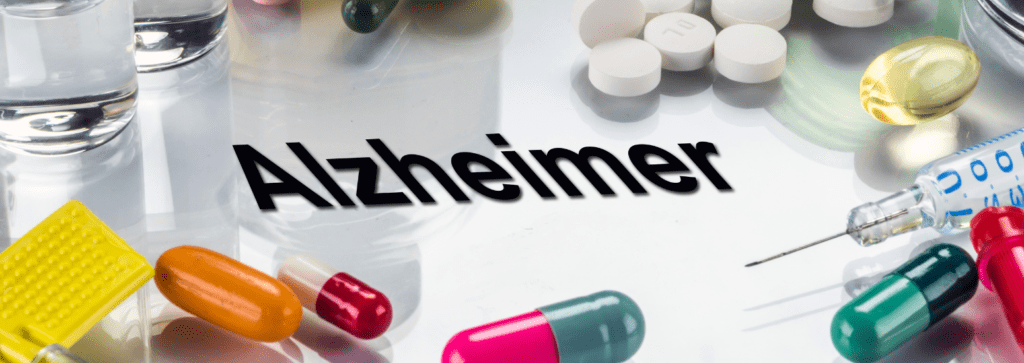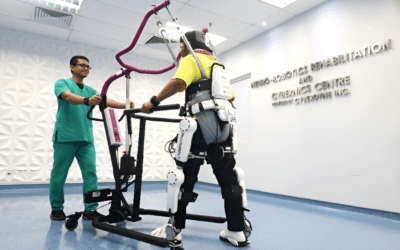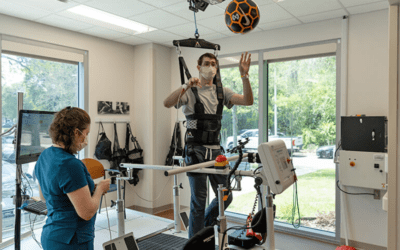Depression can significantly exacerbate neurological conditions, such as stroke, multiple sclerosis, and Parkinson’s disease, leading to poorer outcomes and reduced quality of life. The interplay between depression and neurological disorders can complicate treatment and rehabilitation efforts, making it essential to address both simultaneously. Recognizing and managing depression in patients with neurological conditions is crucial for holistic care and improved overall functioning.
Influence of Depression on Neurological Conditions:

Depression is a common comorbidity in individuals with neurological conditions, significantly impacting their health and quality of life.
Here’s how depression influences various neurological disorders:
1. Stroke
- Impact: Depression is prevalent after a stroke, affecting recovery and rehabilitation outcomes. It can lead to increased disability, longer hospital stays, and a higher risk of recurrent strokes.
- Symptoms: Patients may experience feelings of hopelessness, fatigue, and difficulty concentrating, which can hinder their ability to engage in rehabilitation.
2. Multiple Sclerosis (MS)
- Impact: Depression can worsen the physical and cognitive symptoms of MS, leading to increased fatigue and reduced motivation to participate in treatment.
- Symptoms: Patients may struggle with mood fluctuations, which can further exacerbate physical disability and affect social interactions.
3. Parkinson’s Disease
- Impact: Depression is common in Parkinson’s patients and can intensify motor symptoms, reduce treatment adherence, and impair overall functioning.
- Symptoms: Emotional disturbances, such as anxiety and low mood, can contribute to a decline in cognitive function and affect the ability to perform daily activities.
4. Epilepsy
- Impact: Individuals with epilepsy are at a higher risk for depression, which can affect seizure control and the overall quality of life.
- Symptoms: Feelings of isolation and stigma associated with seizures can exacerbate depressive symptoms, leading to a vicious cycle of worsening mental health.
The interplay between depression and neurological conditions is complex, with depression often worsening physical symptoms and recovery outcomes. Effective management of both mental health and neurological symptoms is crucial for improving overall well-being and enhancing the quality of life for affected individuals. Early recognition and integrated treatment strategies can lead to better outcomes in this vulnerable population.
Specific Conditions Triggered by Depression:
Depression can trigger or exacerbate a variety of specific conditions, leading to significant consequences for both mental and physical health. Here’s an overview of some key conditions influenced by depression and their consequences:
1. Anxiety Disorders
- Consequences: Increased feelings of panic, social withdrawal, and avoidance behaviors. The combination can impair daily functioning, lead to chronic stress, and complicate treatment.
2. Cardiovascular Disease
- Consequences: Higher risk of heart attacks, hypertension, and stroke. Depression can lead to unhealthy lifestyle choices, such as poor diet and inactivity, further increasing cardiovascular risks.
3. Diabetes
- Consequences: Poor glycaemic control and increased complications. Individuals with depression may struggle with medication adherence and lifestyle modifications, exacerbating health issues.
4. Chronic Pain Conditions
- Consequences: Heightened perception of pain and decreased quality of life. Depression can lower pain tolerance, making it harder for individuals to engage in treatment or daily activities.
5. Gastrointestinal Disorders
- Consequences: Worsening symptoms in conditions like irritable bowel syndrome (IBS) and inflammatory bowel disease (IBD). Depression can exacerbate digestive issues, leading to discomfort and dietary challenges.
6. Neurodegenerative Diseases
- Consequences: Accelerated cognitive decline and reduced quality of life. Depression can hinder motivation for rehabilitation and impact overall disease management, worsening symptoms.
7. Substance Use Disorders
- Consequences: Increased risk of addiction and relapse. Individuals may use substances to cope with depressive symptoms, leading to a cycle of dependence and further mental health decline.
The interplay between depression and these conditions highlights the importance of integrated treatment approaches. Addressing depression alongside comorbid conditions is crucial for improving overall health outcomes and enhancing quality of life. Early intervention and comprehensive care can mitigate the adverse effects of depression on physical and mental well-being.
Alzheimer’s Disease and Depression:

Alzheimer’s disease often coexists with depression, significantly impacting cognitive function and daily living. Depression can exacerbate symptoms such as memory loss and confusion, leading to increased caregiver burden and reduced quality of life. The interplay between these conditions complicates treatment, making it essential to address both mental health and cognitive decline concurrently. Early recognition and intervention can improve outcomes for individuals affected by both Alzheimer’s and depression.
Migraine and Depression:
Depression and migraine are closely linked, with each condition potentially exacerbating the other.
- Prevalence: Individuals with migraines are more likely to experience depression, with studies suggesting that approximately 30-50% of migraine sufferers also report depressive symptoms.
- Symptoms Interaction: The chronic pain and unpredictability of migraines can lead to feelings of frustration, helplessness, and anxiety, contributing to the development or worsening of depression.
- Impact on Quality of Life: The combination of both conditions can severely affect an individual’s daily functioning, social interactions, and overall quality of life, leading to increased disability.
- Treatment Challenges: Managing both conditions simultaneously is crucial, as traditional migraine treatments may not adequately address depressive symptoms, and vice versa. A holistic approach that includes medication, cognitive behavioral therapy, and lifestyle modifications is often beneficial.
Traumatic Brain Injury and Depression:
Traumatic Brain Injury (TBI) and depression are closely linked, with TBI significantly increasing the risk of developing depressive disorders. Here are key points regarding their relationship:
- Prevalence: Many individuals with TBI experience depression, with studies indicating that up to 50% of TBI patients may develop depressive symptoms post-injury.
- Impact on Recovery: Depression can hinder recovery from TBI by affecting motivation, engagement in rehabilitation, and overall quality of life. It can exacerbate cognitive and physical impairments, complicating the healing process.
- Symptoms: The symptoms of depression in TBI patients may include persistent sadness, loss of interest in activities, irritability, fatigue, and difficulty concentrating—symptoms that can overlap with or be mistaken for TBI-related challenges.
- Biological Mechanisms: The brain regions affected by TBI, particularly those involved in mood regulation, may contribute to the onset of depression. Changes in neurotransmitter levels and Neuroinflammation following TBI can also play a role.
- Integrated Treatment Approaches: Effective management of both TBI and depression often requires a multidisciplinary approach, including psychotherapy, medication, and rehabilitation strategies that address both mental health and physical recovery.
Consequences of Depression:
The consequences of depression can significantly impact overall health, leading to increased risk of anxiety disorders, cardiovascular disease, and diabetes. Individuals may experience chronic pain and gastrointestinal issues, further complicating treatment and quality of life. Additionally, depression can accelerate cognitive decline in neurodegenerative diseases and increase the likelihood of substance use disorders. This interconnectedness underscores the need for integrated treatment approaches to address both mental and physical health comprehensively.
Steps to stay Positive:
Staying positive during depression can be challenging, but there are practical steps you can take to help manage your feelings and maintain a more hopeful outlook:
1. Acknowledge Your Feelings
Recognize that it’s okay to feel down and allow yourself to experience those emotions without judgment.
2. Establish a Routine
Create a daily schedule to provide structure and a sense of normalcy. Even small tasks can help you feel accomplished.
3. Set Small, Achievable Goals
Break tasks into manageable steps, celebrating small victories to build a sense of accomplishment and motivation.
4. Practice Self-Care
Prioritize activities that nurture your body and mind, such as regular exercise, healthy eating, and adequate sleep.
5. Connect with Supportive People
Reach out to friends, family, or support groups. Sharing your feelings with understanding individuals can provide comfort and perspective.
6. Engage in Mindfulness and Relaxation
Use mindfulness techniques, such as meditation or deep breathing exercises, to help calm your mind and stay present.
7. Limit Negative Input
Reduce exposure to negative news, social media, or stressful environments that can amplify feelings of despair.
8. Focus on Gratitude
Write down things you are grateful for, even small ones, to shift your focus from negativity to positivity.
9. Seek Professional Help
Consider talking to a mental health professional for therapy or medication, which can provide tools and strategies for coping.
10. Engage in Activities You Enjoy
- Participate in hobbies or activities that bring you joy, even if you don’t feel like it at first. It can help lift your mood over time.
Implementing these steps can help create a foundation for coping with depression while fostering a more positive outlook. Remember, recovery is a process, and it’s important to be gentle with yourself as you navigate your feelings.
In conclusion, understanding the interplay between depression and neurological conditions is crucial for effective patient care and management. Depression not only exacerbates the symptoms of various neurological disorders but also complicates treatment outcomes and quality of life. Addressing both mental health and neurological issues through integrated approaches can lead to better patient outcomes, enhanced coping strategies, and improved overall well-being. Prioritizing mental health alongside neurological care is essential for fostering holistic recovery and support for affected individuals.



